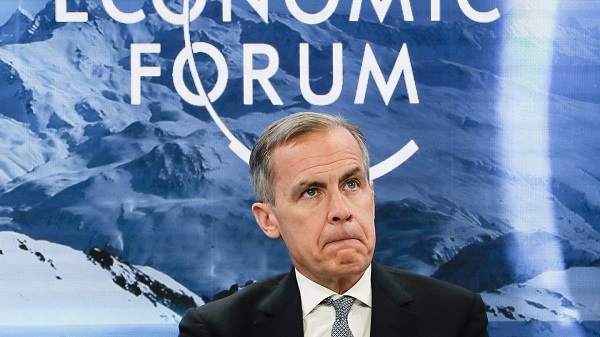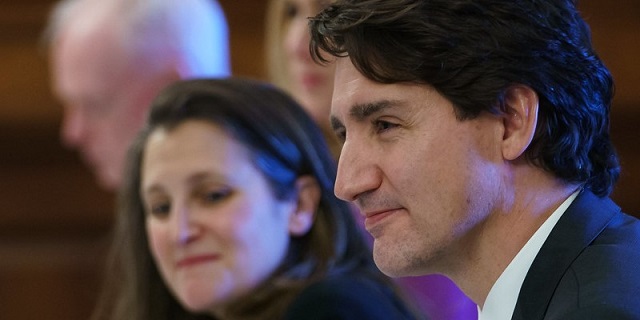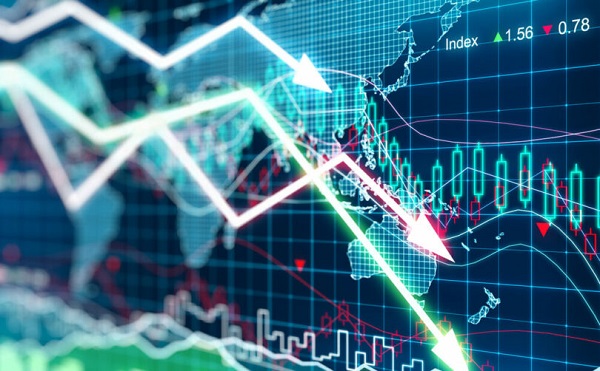Business
Canada: It’s Time to Stop Holding Ourselves Back – Lynn Exner
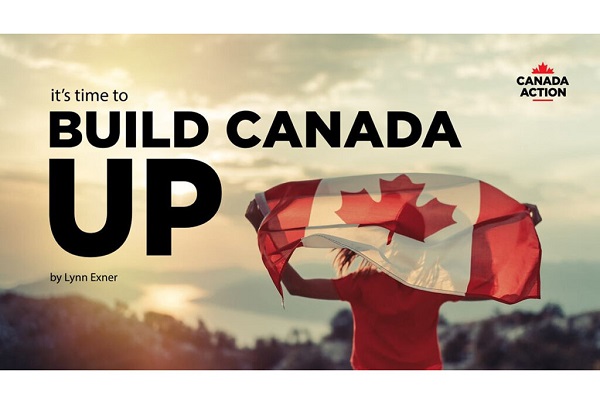
From Energy Now
By Lynn Exner
For decades, Canada’s provinces have behaved like crabs in a bucket—pulling each other down instead of lifting each other up. Instead of working together to build a stronger economy, we’ve allowed outdated trade barriers, regulatory red tape, and political infighting to stifle our own potential.

In my work advocating for Canadian resource development, I see it all the time. Canada has everything the world needs—energy, minerals, lumber, food, and more. But instead of ensuring our own domestic economy is strong and efficient, we’ve made it harder for businesses to grow, both within our borders and beyond them. Instead of celebrating and capitalizing on each other’s strengths, we have spent too much time competing internally, blocking opportunities, and making it difficult to trade internationally and within our own country.
That might have been tolerated in the past, when global trade was predictable and our largest trading partners were reliable. But the world has changed. Tariffs are being weaponized, supply chains are shifting, and countries everywhere are prioritizing their own industries.
If Canada wants to remain competitive, we need to start acting like a country—one with an internal economy that functions as smoothly as our external trade agreements.
The good news is that momentum is finally building to address this issue. Canada’s leaders are talking about dismantling interprovincial trade barriers—something that should have happened long ago. The challenge now is to make sure that this talk turns into action. It has been suggested it could take as little as 30 days. We can’t afford another decade of stalled negotiations, watered-down agreements, and excuses for inaction. It’s time to demand real change and hold our leaders accountable to follow through.

Every region of Canada produces something the rest of the country and the world need. Alberta’s oil and gas, Saskatchewan’s potash, Ontario’s manufacturing, Quebec’s hydroelectric power, British Columbia’s ports, and Atlantic Canada’s fisheries—these industries are the backbone of our economy. They should be supported, expanded, and celebrated. Instead, businesses and workers trying to move goods, services, and expertise across provincial lines face obstacles that weaken our ability to compete globally.
One of the most common-sense solutions is a National Energy and Resource Corridor—a dedicated infrastructure network that allows for the efficient transport of energy, minerals, and other critical resources across the country. Instead of every project facing jurisdictional battles and costly delays, a coordinated, pre-approved corridor would streamline trade and investment, ensuring that Canadian products reach both domestic and international markets without unnecessary obstacles. It would also provide a foundation for future development—whether in oil and gas, renewable energy, or critical minerals—giving businesses and investors the certainty they need to support long-term growth.
We see the need for this in our supply chains, where businesses deal with costly delays just trying to move products between provinces. We see it in our labour markets, where skilled workers face unnecessary barriers to working in other regions of the country. And we see it in national infrastructure projects that could benefit all Canadians but get tangled in red tape.

These inefficiencies cost our economy billions of dollars every year—money that should be driving investment, innovation, and job creation instead of being lost to unnecessary restrictions.
In normal times, this would be frustrating. In today’s economic and geopolitical climate, it’s reckless. The global marketplace is shifting, and Canada must be ready to meet the challenge. Instead of being held back by internal divisions, we need to work together to make Canada a stronger, more self-sufficient, and more competitive trading nation.
We’ve proven that cooperation is possible when it’s absolutely necessary. Now, we need to treat it as a permanent priority, not just a temporary fix during a crisis. This is not just about economic efficiency—it’s about Canada’s ability to stand strong in a changing world.
There is no reason why a Canadian business should have to navigate different rules and restrictions just to expand into another province. There is no reason why a worker should have to requalify to do the same job in a different part of the country. And there is certainly no reason why major projects that create jobs and economic growth should be stalled for years over jurisdictional disputes.
A crisis like this is a terrible thing to waste. The global economy is shifting, and Canada has a choice. We can cling to outdated provincial protectionism and regulatory inefficiencies, or we can remove these barriers and finally build a true national economy. We can keep acting like crabs in a bucket, pulling each other down, or we can recognize that our strength lies in working together. Instead of standing in each other’s way, we should be celebrating each other’s strengths and ensuring that every region of the country can contribute fully to our shared prosperity.
Canada has faced major challenges before, and we’ve always been at our best when we face them as a united country. Now, more than ever, we need to tap into that spirit—not just to fix today’s problems, but to prepare for whatever surprises the future holds. The time for provincial rivalries, excessive regulation, and economic inefficiency is over.
It’s time to break free from the bucket and move forward as a stronger, more competitive, and more resilient Canada.

Lynn Exner is a spokesperson for Canada Action, a volunteer-initiated grassroots group dedicated to promoting natural resource development and economic growth in Canada.
Business
Canadian official keeping Parliament closed is a member of Trudeau’s family foundation
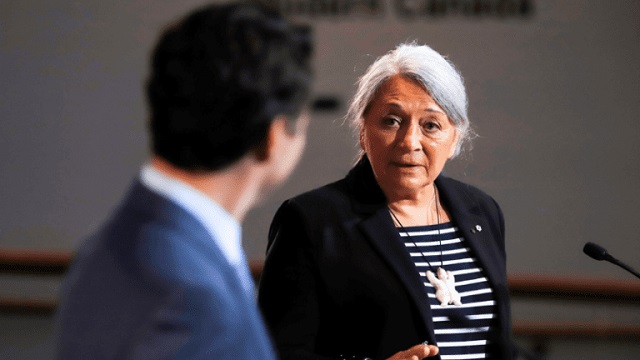
From LifeSiteNews
“How is there no conflict of interest with Mary Simon, especially? This is very similar to Freeland sitting on the WEF board?”
Canada’s governor general, who is keeping Parliament closed on behalf of Prime Minister Justin Trudeau, is a member of the Pierre Elliott Trudeau Foundation, an organization named after Justin’s father that was founded in part by his family.
According to the Pierre Elliott Trudeau Foundation website, Governor General of Canada Mary Simon, who has been keeping Parliament suspended at the request of Prime Minister Justin Trudeau, is a mentor for the Pierre Elliott Trudeau Foundation.
The website lists Simon as a “champion of the social, economic, and human rights of Canadian Inuit people, she shares with the Foundation community the experience she acquired in senior leadership positions in various land claims organizations.”
The Trudeau Foundation labels itself as “an independent and non-partisan charity established in 2001 as a living memorial to the former prime minister.” However, the foundation is under investigation after it received a large donation alleged to be connected to the Chinese Communist Party.
Simon now serves as Canada’s Governor General, the federal representative of the Canadian monarch. As such, Trudeau’s request to suspend Parliament to allow for a Liberal leadership race was approved by Simon before taking affect.
Parliament has now been closed for over a month, since January 6, and is scheduled to remain closed until March 24, despite calls from both Canadians and politicians to reopen the legislature.
Currently, Canada is unable to fully address issues facing Canadians, including U.S. President Donald Trump’s tariff threats. Regardless of this, Trudeau has refused to reopen Parliament, a decision enabled by Simon.
Many online have pointed out that Simon’s role in the Foundation could cause conflict of interest when dealing with Trudeau.
“Friendly reminder that the Governor General of Canada, Mary Simon, is a member of the Trudeau Foundation,” one user wrote on X. “Has any Member of Parliament raised this as an issue of conflict of interest?”
“The Trudeau foundation along with Trudeau must be investigated,” another declared.
“How is there no conflict of interest with Mary Simon, especially? This is very similar to Freeland sitting on the WEF board?” he questioned.
In addition to being a mentor for the Trudeau foundation, records reveal that the Trudeau government increased Simon’s 2025 salary to $378,000 following the $15,200 increase. Simon’s salary has increased by $49,300 since she took office in 2021.
“Can anyone in government explain how Canadians are getting more value from the governor general, because her taxpayer-funded salary just increased by more than $1,200 a month,” Canadian Taxpayer Federation Federal Director Franco Terrazzano said.
Business
Republican senator details millions USAID spent on LGBT activism, terrorist groups
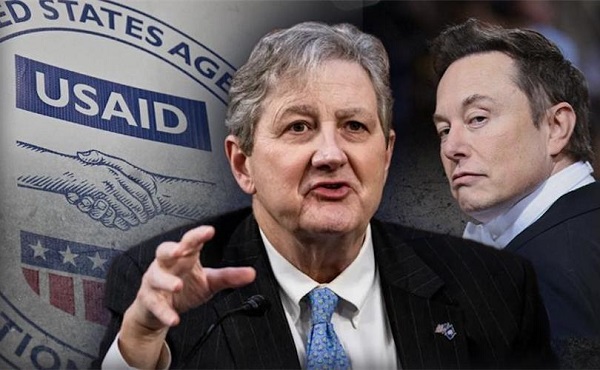
From LifeSiteNews
Expenditures include $2 million for “sex change” operations in Guatemala, $20 million for a Sesame Street-type children’s show in Iraq, $7.9 million to train media in Sri Lanka not to use “gendered” language, $1.5 million for LGBT activism in Jamaica, $3.9 million for LGBT activism in Macedonia, and even $10 million for meals for the Nusra front, an al-Qaeda-linked terrorist group in Syria.
U.S. Sen. John Kennedy (R-LA) took to the Senate floor to detail just some of ways the U.S. Agency for International Development (USAID) has been using American taxpayer dollars without the public’s knowledge or approval, making the case that it more than vindicates the Trump administration’s foreign aid freeze.
The Trump State Department recently issued a 90-day freeze on foreign aid disbursed through USAID, citing millions in waste and ideologically-biased programs. With exceptions for certain food programs and military aid to Israel and Egypt, the pause is meant to give the administration time to conduct a more thorough review of foreign aid to determine what permanent cuts should be made.
On February 6, Kennedy highlighted several examples of USAID funding uncovered by Elon Musk’s Department of Government Efficiency (DOGE) advisory group, which dramatically contrast with the popular assumption that USAID merely offers help to the poor and sick around the world.
Musk “found that USAID gave money to support electric vehicles in Vietnam—our money, taxpayer money,” Kennedy said. “He found that USAID gave money to a transgender clinic in India. I didn’t know that. I bet you the American people didn’t know that.
“He found that USAID gave $1.5 million to a Serbian LGBTQ group,” he continued. “They got $1.5 million to ‘advance diversity, equity, and inclusion in Serbia’s workplaces and business communities.’ What else did Mr. Musk find that my colleagues don’t want to talk about?”
Other expenditures include $2 million for “sex change” operations in Guatemala, $20 million for a Sesame Street-type children’s show in Iraq, $7.9 million to train media in Sri Lanka not to use “gendered” language, $1.5 million for LGBT activism in Jamaica, $3.9 million for LGBT activism in Macedonia, and even $10 million for meals for the Nusra front, an al-Qaeda-linked terrorist group in Syria.
“We’re not talking Cub Scout troops here,” Kennedy said of $122 million that USAID distributed to groups linked to terrorism, including “organizations in Gaza controlled by Hamas […] Why? Why? Why aren’t my colleagues talking about that? Can anyone answer that? Recipients of the money they found have, quote, ‘called for their lands to be cleansed from the impurity of Jews.’ That’s who we’re giving foreign aid to?”
“This has been going on for a week,” Kennedy told his colleagues. “People have been screaming like they’re part of a prison riot. ‘Oh, my God, look at what Musk is doing. He’s looking at the spending.’ And I’ve listened to people talk about the process and debate whether it’s constitutional and discuss how many lawyers can dance on the head of a pen. But you know what? I haven’t heard one single person who’s upset with President Trump or Mr. Musk talk about what he’s found.”
“Now, I am not saying everything that USAID does is wasted, but I am saying a lot of it is—a h-ll of a lot of it is—and we ought to be on the floor of this United States Senate thanking Mr. Musk, and we ought to be asking him to go through every agency and look at everybody’s budget—everybody’s budget,” the senator said.
As LifeSiteNews previously covered, the Biden administration also directed millions of dollars to pro-abortion organizations through USAID. Over the weekend, however, a federal judge temporarily blocked the administration from putting USAID employees on paid leave, in which critics are calling a particularly extreme case of judicial overreach.
-
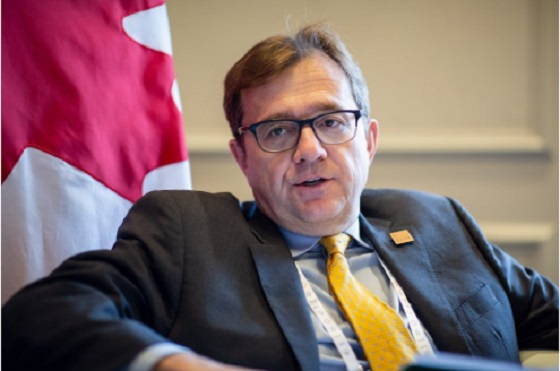
 Energy2 days ago
Energy2 days agoLATE TO THE PARTY: Liberal Resource Minister Minister Suddenly Discovers Canada Needs East-West Pipeline
-
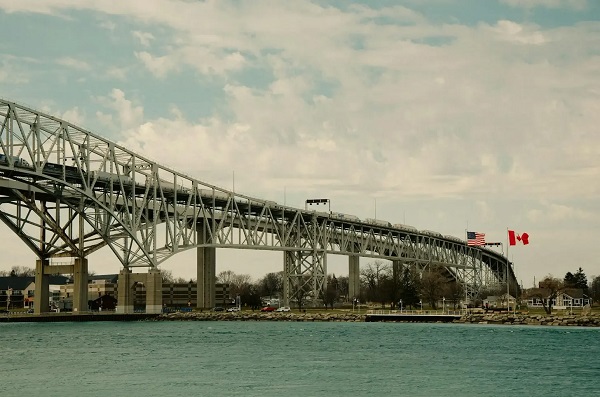
 Break The Needle1 day ago
Break The Needle1 day agoCanada-US border mayors react to new border security initiative
-
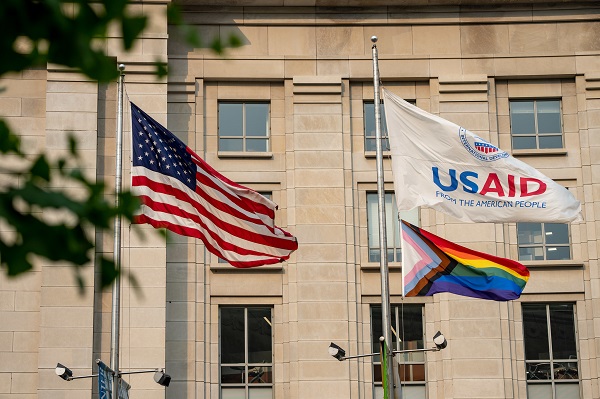
 Business2 days ago
Business2 days ago‘The DNA Of Our Foreign Policy’: How USAID Hid Behind Humanitarianism To Export Radical Left-Wing Priorities Abroad
-
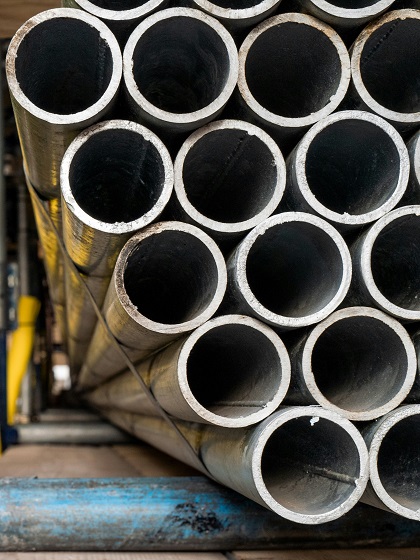
 Business1 day ago
Business1 day agoTrump imposes 25 percent tariff on all foreign steel, aluminum imports
-
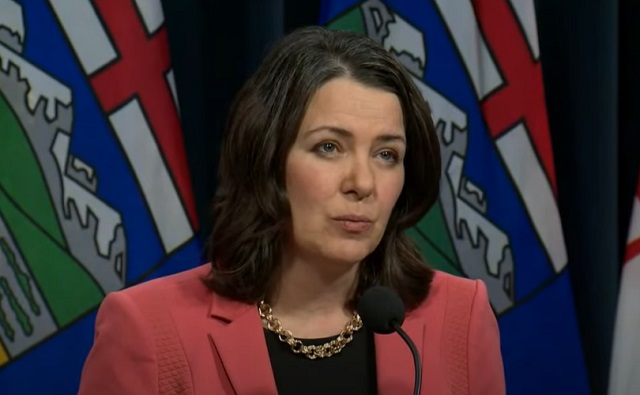
 Alberta1 day ago
Alberta1 day agoAlberta calls for tough-on-crime approach from feds
-
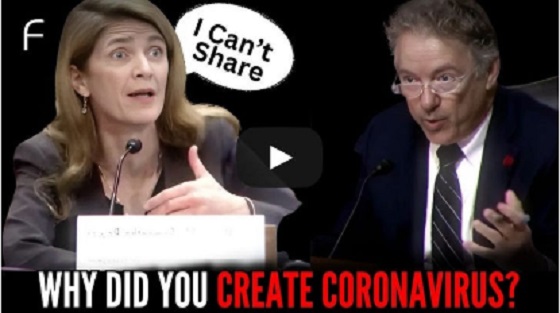
 COVID-191 day ago
COVID-191 day agoUSAID directed over $200 million to gain of function research leading up to SARS-CoV outbreak
-
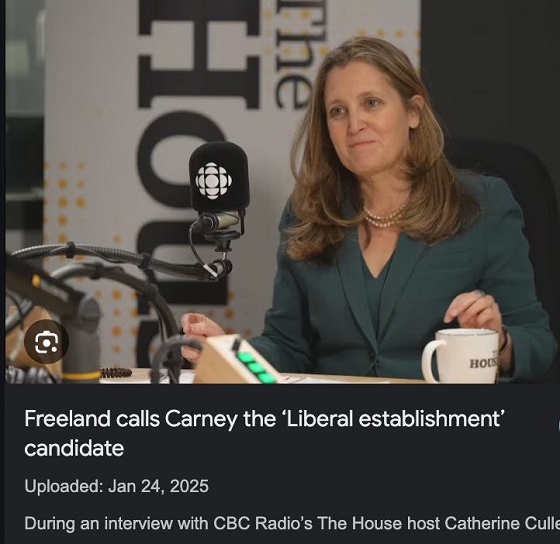
 espionage1 day ago
espionage1 day agoCanada Election Monitor Detects PRC Cyber-Attacks on Liberal Leadership Candidate Freeland
-

 International1 day ago
International1 day agoDonald Trump reaffirms intention to buy Gaza and annex Canada

